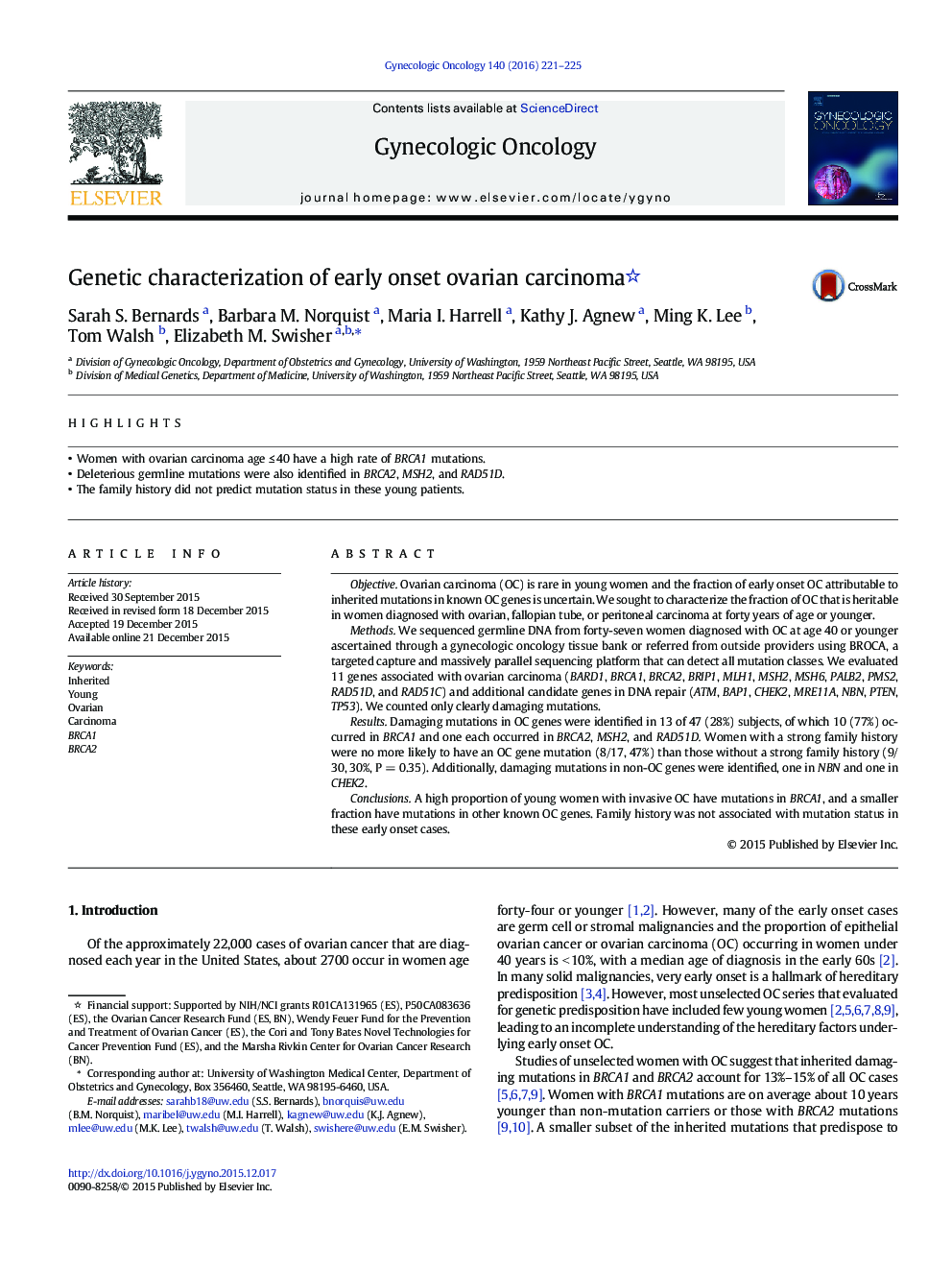| Article ID | Journal | Published Year | Pages | File Type |
|---|---|---|---|---|
| 6184706 | Gynecologic Oncology | 2016 | 5 Pages |
â¢Women with ovarian carcinoma age â¤Â 40 have a high rate of BRCA1 mutations.â¢Deleterious germline mutations were also identified in BRCA2, MSH2, and RAD51D.â¢The family history did not predict mutation status in these young patients.
ObjectiveOvarian carcinoma (OC) is rare in young women and the fraction of early onset OC attributable to inherited mutations in known OC genes is uncertain. We sought to characterize the fraction of OC that is heritable in women diagnosed with ovarian, fallopian tube, or peritoneal carcinoma at forty years of age or younger.MethodsWe sequenced germline DNA from forty-seven women diagnosed with OC at age 40 or younger ascertained through a gynecologic oncology tissue bank or referred from outside providers using BROCA, a targeted capture and massively parallel sequencing platform that can detect all mutation classes. We evaluated 11 genes associated with ovarian carcinoma (BARD1, BRCA1, BRCA2, BRIP1, MLH1, MSH2, MSH6, PALB2, PMS2, RAD51D, and RAD51C) and additional candidate genes in DNA repair (ATM, BAP1, CHEK2, MRE11A, NBN, PTEN, TP53). We counted only clearly damaging mutations.ResultsDamaging mutations in OC genes were identified in 13 of 47 (28%) subjects, of which 10 (77%) occurred in BRCA1 and one each occurred in BRCA2, MSH2, and RAD51D. Women with a strong family history were no more likely to have an OC gene mutation (8/17, 47%) than those without a strong family history (9/30, 30%, PÂ =Â 0.35). Additionally, damaging mutations in non-OC genes were identified, one in NBN and one in CHEK2.ConclusionsA high proportion of young women with invasive OC have mutations in BRCA1, and a smaller fraction have mutations in other known OC genes. Family history was not associated with mutation status in these early onset cases.
